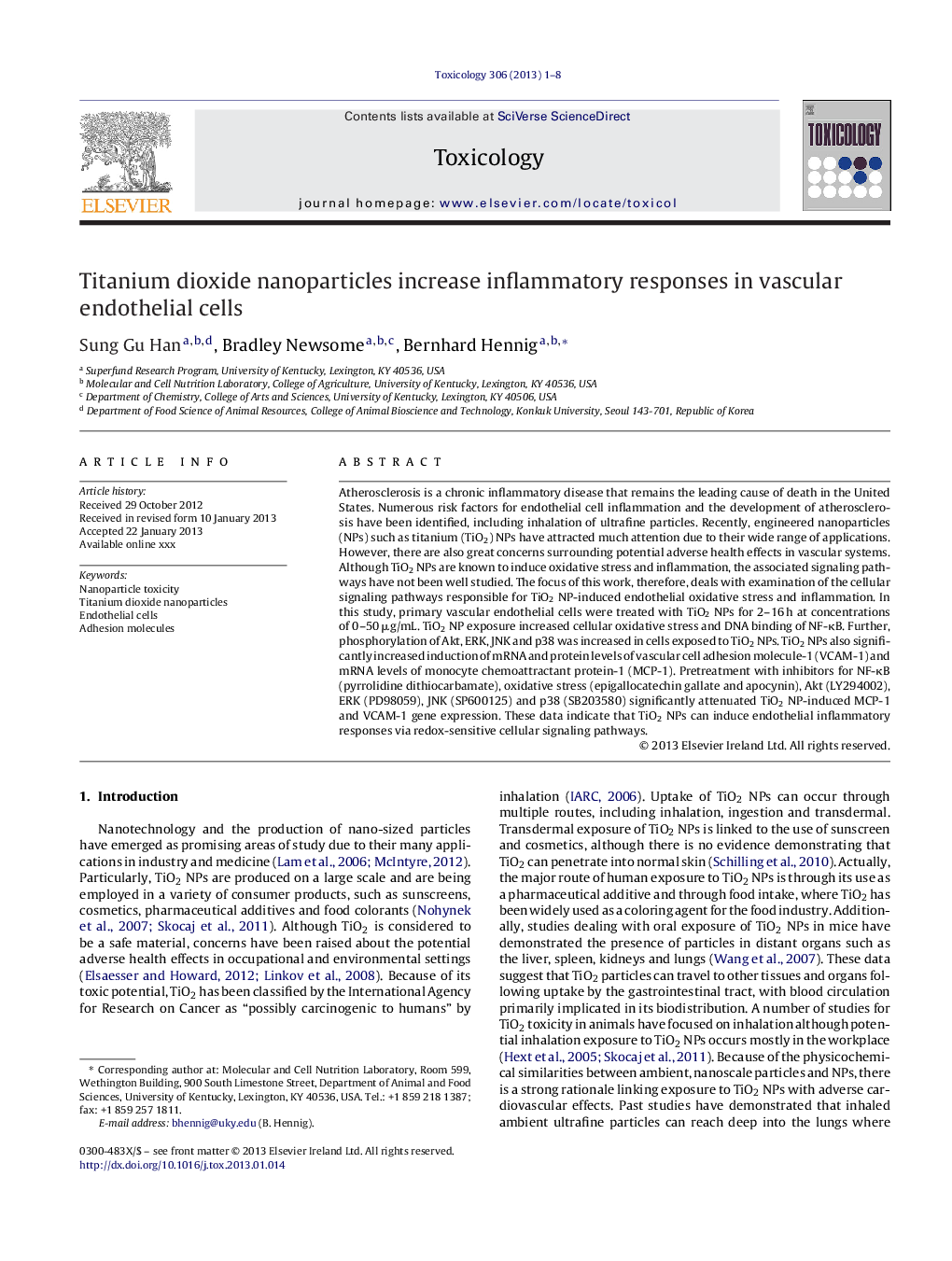| Article ID | Journal | Published Year | Pages | File Type |
|---|---|---|---|---|
| 5859340 | Toxicology | 2013 | 8 Pages |
Abstract
Atherosclerosis is a chronic inflammatory disease that remains the leading cause of death in the United States. Numerous risk factors for endothelial cell inflammation and the development of atherosclerosis have been identified, including inhalation of ultrafine particles. Recently, engineered nanoparticles (NPs) such as titanium (TiO2) NPs have attracted much attention due to their wide range of applications. However, there are also great concerns surrounding potential adverse health effects in vascular systems. Although TiO2 NPs are known to induce oxidative stress and inflammation, the associated signaling pathways have not been well studied. The focus of this work, therefore, deals with examination of the cellular signaling pathways responsible for TiO2 NP-induced endothelial oxidative stress and inflammation. In this study, primary vascular endothelial cells were treated with TiO2 NPs for 2-16 h at concentrations of 0-50 μg/mL. TiO2 NP exposure increased cellular oxidative stress and DNA binding of NF-κB. Further, phosphorylation of Akt, ERK, JNK and p38 was increased in cells exposed to TiO2 NPs. TiO2 NPs also significantly increased induction of mRNA and protein levels of vascular cell adhesion molecule-1 (VCAM-1) and mRNA levels of monocyte chemoattractant protein-1 (MCP-1). Pretreatment with inhibitors for NF-κB (pyrrolidine dithiocarbamate), oxidative stress (epigallocatechin gallate and apocynin), Akt (LY294002), ERK (PD98059), JNK (SP600125) and p38 (SB203580) significantly attenuated TiO2 NP-induced MCP-1 and VCAM-1 gene expression. These data indicate that TiO2 NPs can induce endothelial inflammatory responses via redox-sensitive cellular signaling pathways.
Related Topics
Life Sciences
Environmental Science
Health, Toxicology and Mutagenesis
Authors
Sung Gu Han, Bradley Newsome, Bernhard Hennig,
